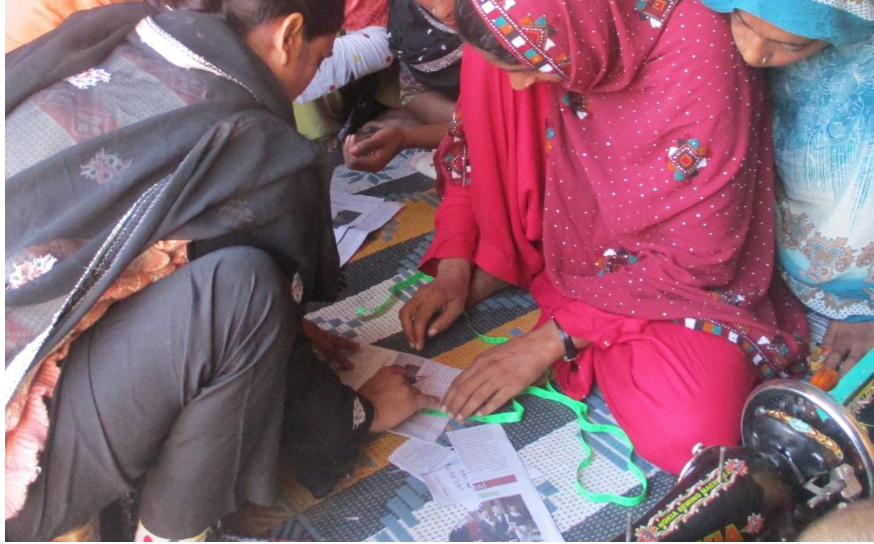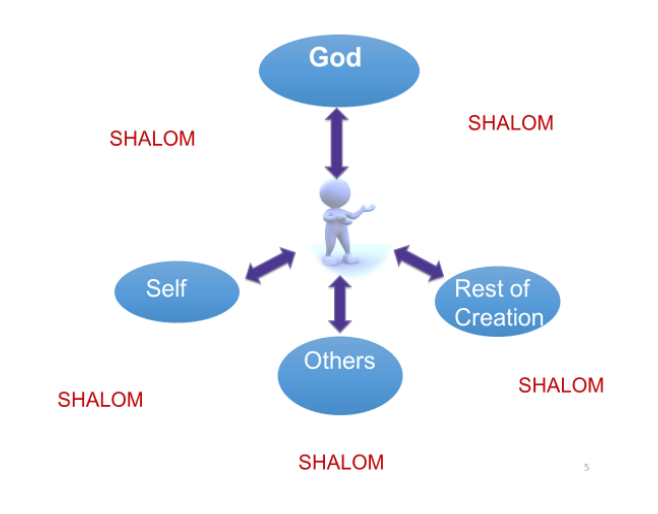Written by Charlotte Deuel, Global CHE Network
“Alone we can do so little; together we can do so much” – Helen Keller
Most church planters are familiar with DMM training, but what happens when community development is integrated into Disciple Making Movements?
An innovative, integrated church planting strategy has been developed and launched called Integral Disciple Making Movement (IDMM). IDMM is a model that brings the best of Community Health Evangelism (CHE) and Disciple Making Movement (DMM) methods together into a church planting and community transformation strategy.
I (Charlotte) worked for years training organizations and implementing Community Health Evangelism (CHE) in hard-to-reach areas in Central Asia. I shared my desire for more fruit with others within the Global CHE Network (GCN). About five years ago, IDMM was developed as a collaborative effort of members of the Global CHE Network (a member of GACX)1 who represented different partner organizations – Partners International, RESCOF, Medical Ambassadors, World Challenge, Team Expansion (a member of GACX), Christian Missionary Fellowship, and others.
The hope was to see disciples of Jesus who are thriving physically, spiritually, socially, and emotionally develop into Christian communities.
The Birth of IDMM Training
To begin discovering what the IDMM model should look like, we evaluated some important values: Medical Ambassadors (a member of Global CHE Network) articulates CHE core values as follows:
Commitment to Jesus
Respect for Those We Serve
Desire for Multiplying and Sustained Impact
In addition to these values, the GCN team included the seven necessary elements to initiate a disciple-making movement (DMM)2 as they developed IDMM:
Disciples Who Make Disciples
Extraordinary Prayer
Engagement
Persons of Peace
Discovery Groups
Establishing Churches
Leadership Development
Different CHE teams in Asia and Africa began to launch IDMM by training and equipping local leaders in the places where they were already working. Teams began to boldly share God’s Big Story (more on this below) while addressing physical and social needs. As the team shared about four fundamental relationships (God, others, ourselves, and creation), local people would begin to communicate their desire for change in their lives, families, and communities. The teams then worked with these “persons of peace” (people receptive to the gospel who become conduits for the gospel into their communities) to start discovery groups.
IDMM Discovery Groups
The discovery group is a place to learn about God, obey what He reveals to them, grow in healthy physical and social behavior, and build skills that will help them earn a living.

For example, in South Asia, women gather in a village home to learn how to sew, unpack a Bible story, and discuss healthy pregnancies and other topics. Individuals apply the Bible to their lives using three simple, easy-to-remember questions:
What do I learn about God?
What do I learn about humankind?
How can I apply this to my life?
Brother David was an individual who underwent IDMM training in India and was greatly blessed by what he learned. When he went back home, his team started visiting Thamu, a village 8 kilometers from their village. Within six months, there were four new discovery groups in the village using the IDMM training.
“When we use IDMM to train and equip remote communities, we see ordinary people learning how to present the complete Gospel message, study the Word of God, promote accountability and multiplication, help break silos and integrate all initiatives for holistic development.” – ZJ, Pakistan
The Trajectory of IDMM
In different areas of the world, the IDMM model will vary as it adapts to these five objectives:

There are four key steps in the process of applying these objectives:
Step One – God prepares the way. The ministry team engages in prayer and intentionally seeks a receptive person (person of peace) in their target community. They seek ways to enter the community by addressing needs shared by community members. Examples are sewing centers, adult literacy, or after-school tutoring.
Step Two – Present the Gospel. The team shares God’s Big Story – God’s plan, man’s fall, and God’s plan for restoration and redemption through Jesus Christ – with the person of peace who starts a discovery group with others from their family or community. 3

Step Three – Community Transformation. Steps 2 and 3 naturally merge as the discovery groups emphasize gospel presentation, making and multiplying integral disciples. Through acts of love and healthy living, followers of Jesus are no longer marginalized but actively bringing change in their community.
Step Four – Train the Trainers. The ministry team works with the discovery group leaders to provide scripture story sets, health lessons, and starting healthy business training to reach neighboring communities. Leaders are mentored to then lead self-sustaining churches which typically meet in homes.
Kingdom Impact
In the past few years, indigenous leaders have had a growing desire to adopt and adapt IDMM to their area of work. There are now indigenous trainers in Central Asia, South Asia, and the Horn of Africa.
“The pandemic exposed the lack of integral ministries in India. IDMM is the best way forward. Making integral disciples through a community-based approach will expand the Kingdom. ” – J. Watson, Chennai, India
The data of seven indigenous ministries representing sixty workers from Central Asia was tracked from 2016 – 2022:

As local churches and ministry organizations embrace IDMM to make disciples, plant churches, and foster transformation in unreached areas; they will see thriving families, churches, and villages. Integral Disciple Making Movement (IDMM) is biblically based, simple, and sustainable.
“For it is God who is at work in you, both to will and to work for His good pleasure.” Philippians 2:13
Combining CHE and DMM effectively communicates the message of God’s transformative love in a culturally relevant way. Rebecca Lewis, author of Family-Blessing Advocates, explains – “It is not enough merely to identify people groups who don’t yet understand God’s love. We need to help their communities see Jesus as a messenger of peace with God—not a threat to their families—a healer of diseases and relationships, a deliverer from evil”.4
Global CHE Network- chenetwork.org
Watson, David and Watson, Paul, Contagious Disciple Making: Leading Others on a Journey of Discovery, Thomas Nelson, 2014
Anderson, Cynthia and Fritsch, Martine, 4 Principles of Integral Mission and DMMs, https://www.dmmsfrontiermissions.com/4-principles-of-integral-mission-and-dmms/, June 21, 2022
Lewis, Rebecca, Family-Blessing Advocates – Blessing Families by Filling the Gaps, Mission Frontiers, Issue 40, Nov/Dec 2022, p.24 – https://www.missionfrontiers.org/pdfs/MF_44-6_NOV-DEC_Web-24.pdf
